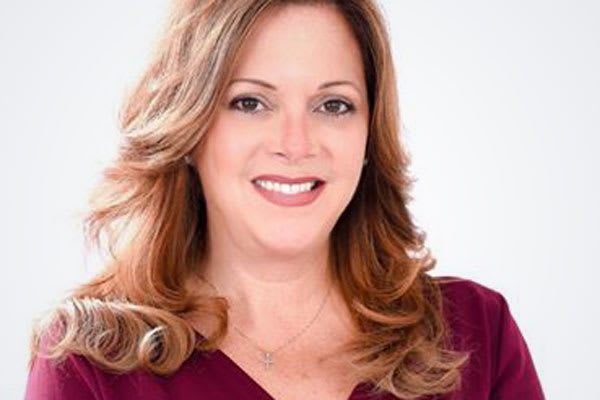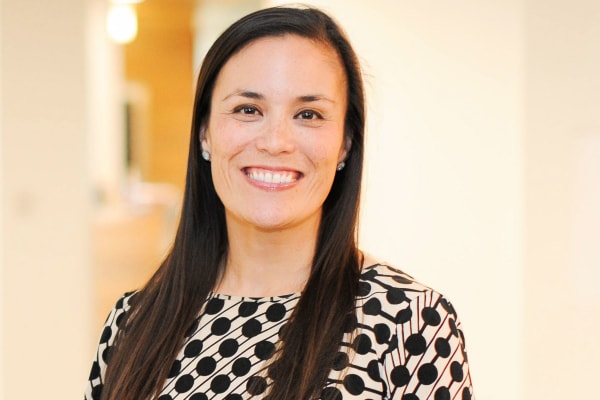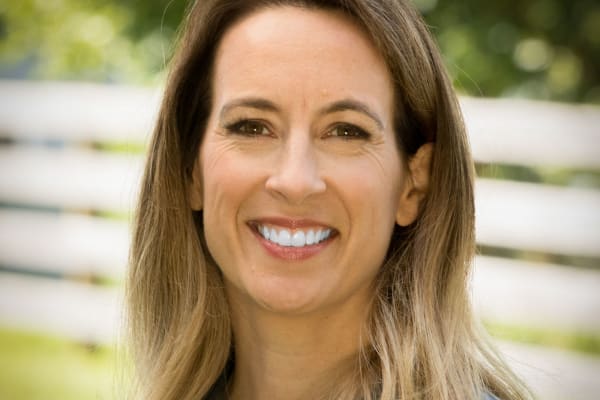Via CNBC
A pediatrician who urged her Republican congressman to oppose Obamacare repeal.
An advocate for foster children who believes President Donald Trump‘s economic policies helped her majority Hispanic district.
An Air Force veteran who thinks Trump’s policies threaten national security.
Those are just a few of the women trying to win a congressional seat this year in their first run for public office. Amid strong feelings about Trump’s priorities and an often messy Congress, the number of women seeking office has spiked in 2018.
In congressional races, women are on the verge of smashing records: 276 women have already filed to run for House seats, on pace to easily top a high of 298 set in 2012, according to the Center for American Women and Politics, or CAWP, at Rutgers University. In Senate races, 27 women have filed to run, and new entries from here could break a 2016 record of 40 candidates.
The wave of women candidates has certainly tilted Democratic. Already, 206 women have declared to run for House seats on the Democratic side, compared with 70 Republicans, according to CAWP. In Senate races, 16 Democratic women and 11 Republican women have filed to run.
More women typically run for Congress on the Democratic side. But opposition to policies on health care, reproductive rights, the environment and taxes crafted by Trump and the GOP-controlled Congress, as well as a perceived misogyny coming from the commander in chief, have all driven first-time Democratic candidates to run. Trump’s election in 2016 helped spark a spike in enthusiasm and civic engagement for the party, which is pushing to win 24 Republican-held House seats to take a majority in the chamber.
Some women running for the House for the first time on the Republican side partly attribute their move to a desire to support GOP economic policies that they say have propped up their home districts.
Although the number of women running has surged this year, the number of men seeking office has increased, as well. Using its list of potential candidates in January, CAWP estimated the number of Democratic women running for the House could spike 146 percent this year relative to what it estimated at the same time in the 2016 election. Men running on the Democratic side were expected to jump by 126 percent relative to 2016.
Despite the surge, women still made up only about 23 percent of potential congressional candidates tracked by CAWP as of January. While that proportion has climbed from about 19 percent in 2016, it still falls well short of representing the overall population, which is 52 percent women.
Still, the surge of women running this year could at least moderately boost representation in Congress, where women hold only about 20 percent of the 535 seats. Many of the women running for House seats, in particular, are either challenging men or running for an open seat previously held by a man. Many women are running for office for the first time in battleground House seats that will help to determine which party controls the chamber after November.
During the early stages of the primary season, seven women running for office for the first time in key House elections told CNBC why they ran and what more women in Congress would mean to them.
Angie Chirino, Republican, Florida’s 27th District
Angie Chirino, the daughter of Cuban-American singer Willy Chirino, thought she would face resistance when she entered a congressional race as a first-time candidate in January.
“But hey, the president of the country never held public office. As an outsider I think it’s the best time,” said Chirino, who is running as a Republican for Florida’s 27th District House seat.
Chirino raises money for the Voices for Children Foundation, which advocates for foster children in the Miami area. She said she feels longtime politicians have lost sight of the communities and people they serve.
Even in an area that is hardly red, Chirino is running as a pro-Trump candidate. She believes his economic policies have helped families in her region, and thinks “you don’t have to like the president to like what he’s doing for the country.”
The retirement of longtime moderate GOP Rep. Ileana Ros-Lehtinen opened the 27th District seat. The Hispanic-majority district, which encompasses parts of Miami, voted for Democrat Hillary Clinton by about a 20-percentage-point margin in 2016. It is a key Democratic flip target.
The Florida primary takes place in August. Ex-Miami-Dade County Commissioner Bruno Barreiro is among the candidates Chirino will face, and led the money race among GOP candidates at the start of the year.
Katie Hill, Democrat, California’s 25th District
Katie Hill saw the 2016 election as a “political awakening” — and not only for women. The 30-year-old first-time candidate said Trump’s victory over Clinton, whom she called “objectively the most qualified person in the race,” showed “we’ve got bigger problems than many of us realize.”
Hill is running for California’s 25th District House seat, held by GOP Rep. Steve Knight. Clinton won the area north of Los Angeles by about 7 percentage points in 2016. Democrats see the seat as a pickup opportunity.
Until she ran last year, Hill was executive director of People Assisting the Homeless, a nonprofit that aims to reduce homelessness. The group advocated for a ballot proposition, passed in 2016, which set up a $1.2 billion bond to house homeless people in Los Angeles.
In Trump’s election and budget priorities, she saw threats to the work she had done. She says income inequality, a failure to address substance abuse and mental health problems, and a lack of affordable housing can all contribute to the “lack of a safety net” where people can become homeless.
To make it to Congress, Hill would have to unseat an incumbent in a district roughly evenly split between registered Republicans and Democrats. She has to get through a primary in June in California, which has a system in which the top two candidates, regardless of party, make the general election. At the end of last year, she led the fundraising race among Democratic candidates but trailed Knight in cash on hand.
Hill says, “We have to consciously try to elect more women,” something she will focus on even if she does not win.
Gina Ortiz Jones, Democrat, Texas’ 23rd District
Gina Ortiz Jones worked in the Office of the U.S. Trade Representative during the final stretch of the Obama administration and in the months after Trump took office. The military and intelligence community veteran soon saw that Trump’s policies “were contrary to my notion of national security,” she said. Ortiz Jones left the administration in June of last year, and declared her first political candidacy for the House soon after.
Otiz Jones, who is running for Congress in Texas’ 23rd District, thinks Trump and the GOP-controlled Congress have not done enough to protect and create opportunities for the people they represent. She cites efforts to roll back the Affordable Care Act, reduce spending on health-care programs for young and elderly people or crack down on immigration, among others, as policies that could leave people with less of a chance to succeed than she had.
“This race for me is really about protecting opportunities,” said Ortiz Jones, who aims to challenge Republican Rep. Will Hurd in November in the district that sits west of San Antonio.
Ortiz Jones’ life experiences have partly driven her resistance to Trump’s policies. She is the daughter of an immigrant, and a lesbian who served as an Air Force intelligence officer in Iraq during the “Don’t Ask, Don’t Tell” era. Gay military members could not openly declare their sexuality for nearly two decades until the rule’s repeal in 2011.
Last month, Ortiz Jones finished first in the Democratic primary for the seat with more than 40 percent of the vote. She heads to a May primary runoff with Rick Trevino, a high school teacher who has cast himself as a more progressive option than Ortiz Jones.
Whoever emerges form the primary will try to unseat Hurd, who has served since 2015. Democrats see an opportunity to gain a seat there, as Clinton won the district by about 4 percentage points.
Leah Phifer, Democrat, Minnesota’s 8th District
Leah Phifer left her job as an FBI counterterrorism analyst in May of last year, days after Trump fired the bureau’s director, James Comey. By October, the 33-year-old had filed to run for Congress for the first time after taking an 80-day listening tour of Minnesota’s 8th District on her motorcycle.
National security concerns partly drove the Democrat’s decision. She opposes Trump’s proposed wall on the U.S.-Mexico border and his travel ban on people from several Muslim-majority countries. Images such as a Senate working group comprised entirely of men starting to craft the Senate’s doomed Obamacare repeal effort last year also drove Phifer. She said the visual got “seared” into the minds of her and other women.
“I believe it’s something that drove all of us to seek a seat at the table regardless of the consequences,” Phifer said.
She expressed concerns about dysfunction in Washington and lawmakers’ inability to pass long-term budgets or avoid government shutdowns. She did not put the issues all on Trump: she called him a “symptom” of broader problems in the political system.
Phifer had planned to challenge current Democratic Rep. Rick Nolan, whom she criticized as too friendly to new copper-nickel mining projects in the state’s “Iron Range.” Nolan announced his retirement earlier this year.
Republicans see the toss-up district as a strong pickup opportunity, as Trump won it by about 15 percentage points in 2016. Pete Stauber, a commissioner for Minnesota’s St. Louis County, is the leading Republican candidate. The state’s primary elections will take place in August.
Kim Schrier, Democrat, Washington’s 8th District
Last March, pediatrician Kim Schrier met with Rep. Dave Reichert’s staff and urged the Republican congressman from Washington to oppose the House’s Obamacare repeal bill. Days later, he voted to send the bill through the House Ways and Means Committee.
“For me, that was the last straw because we all deserve to have representatives who speak for us,” said Schrier, a Democratic candidate for Reichert’s seat in Washington’s 8th District.
Schrier, who took a leave of absence from practicing medicine last year to campaign, said “concerns about the health and well being of [her] patients under an unchecked Trump administration” partly drove her decision to run. As a pediatrician and mother, Schrier said she felt efforts to scale back Obamacare and slash environmental regulations endangered children’s health.
Like Phifer, Schrier was irked by the Senate working group comprised of men crafting health-care policy. She believes health care, in particular, has driven many women to run for office this year. Schrier thinks women lawmakers could “take a longer view” about the effects of policy, rather than focus on their next re-election bid.
Reichert, a longtime congressman, went on to vote against the health-care bill in the full House. But facing the prospect of re-election in a suburban Seattle district Clinton won by about 3 percentage points, he announced his retirement last year, after some possible challengers like Schrier entered the race.
The primary election for the seat will take place in August. At the end of last year, Schrier was leading the fundraising race among Democrats.
Tiffany Shedd, Republican, Arizona’s 1st District
When Tiffany Shedd’s husband suggested she should run for Congress last year, she scoffed. Shedd initially thought a woman from rural Arizona had no shot at winning a House seat.
“We apparently felt beaten down enough that we assumed we can’t even represent ourselves in this district,” said Shedd, a first-time Republican candidate for Congress in Arizona’s 1st District.
A small business attorney, Shedd wants to bring attention to her sprawling northeast Arizona district, which she feels has been left behind despite a wealth of natural resources. The area, currently represented by Democratic Rep. Tom O’Halleran, narrowly supported Trump in 2016.
While she is not outwardly running as a pro-Trump candidate, Shedd believes the president’s economic policies have helped her district. She cites his push to roll back regulations on businesses.
Shedd thinks that more women in Congress can only have a positive effect on governing — even if they are divided along ideological lines.
“I would hope that more women in Congress would cause things to progress even if it’s incrementally,” she said.
The state will hold its primary elections in August.
Mikie Sherrill, Democrat, New Jersey’s 11th District
Mikie Sherrill, a Navy veteran and former prosecutor, says she saw her values attacked in the early days of the Trump administration through policies and comments about women, minorities and military families. Those concerns, combined with a feeling that New Jersey GOP Rep. Rodney Frelinghuysen had become unresponsive to voters, led Sherrill to run for office for the first time.
“I knew after the election, after I saw the attacks on things I spent my entire life supporting and defending, I felt very deeply that I was being called upon to serve again,” said Sherrill, who is running for the House in New Jersey’s 11th District. Frelinghuysen has represented the district since the mid-1990s.
Trump narrowly won the northern New Jersey area in 2016, leading Democrats to see it as a pickup opportunity this year. In January, Frelinghuysen, the powerful House Appropriations Committee chairman, announced he would not run for re-election.
Sherrill has criticized the GOP tax plan, saying it helped the wealthy more than the middle class and damaged her high-tax district, in particular, by curbing state and local tax deductions. Frelinghuysen was among the blue-state Republicans who opposed the bill last December.
Sherrill said women in Congress recently have shown better representation can lead to stronger policy. Like other Democratic candidates, Sherrill said the men’s working group on health care troubled her, and she credited two Republican women in the Senate — Susan Collins of Maine and Lisa Murkowski of Alaska — for helping to sink the chamber’s Obamacare repeal bill. She also highlighted the efforts of Sen. Kirsten Gillibrand, D-N.Y., to curb sexual harassment and assault in the military.
“I think having women at the table really puts front and center issues that are important in our country that maybe some people in elected office really haven’t put front and center,” she said.
— Graphics by CNBC’s John Schoen.






